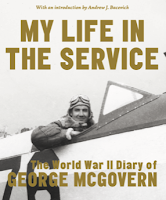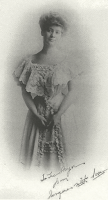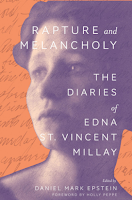‘Bapu has been observing the behaviour of the cats. His letter to the Ashram today is devoted to that subject. The cat’s concentration in observing the lizard was perhaps not noticed by our sages, or else they would have suggested that we must concentrate on God in the same manner. Yesterday a lizard was coming near the cat, which began to shake its tail, but then it turned back and went away in the opposite direction. The cat began to cry as if asking it to be good enough to enter its own mouth and not to go away like that. Englishmen who honestly believe that India should continue to be a British possession remind me of this cat. The cat is their prototype, not the snake.’
This is from the extraordinary diary of Mahadev Desai, who died 60 years ago today. For most of his adult life, Desai was Gandhi’s personal secretary and most trusted confidante, and through that time he kept a detailed diary which is, today, considered a valuable chronicle of the major events in Gandhi’s life and in Indian independence movement. Desai was born into a Brahmin family in 1892 in the village of Saras in Gujarat. His father was a teacher, and his mother died when he was seven. Aged 13, he was married to Durgabehn. He went to Surat High School and the Elphinstone College; after graduating in law, he took a position as an inspector at the central co-operative bank in Mumbai. He first met Gandhi in 1915 and joined his ashram two years later. In 1919, when the colonial government arrested Gandhi in Punjab, he named Desai his heir. Desai often found himself arrested and in prison alongside Gandhi.
Desai was born into a Brahmin family in 1892 in the village of Saras in Gujarat. His father was a teacher, and his mother died when he was seven. Aged 13, he was married to Durgabehn. He went to Surat High School and the Elphinstone College; after graduating in law, he took a position as an inspector at the central co-operative bank in Mumbai. He first met Gandhi in 1915 and joined his ashram two years later. In 1919, when the colonial government arrested Gandhi in Punjab, he named Desai his heir. Desai often found himself arrested and in prison alongside Gandhi.
Throughout his time with Gandhi (or Bapu as he was known), Desai kept a detailed and daily diary focused largely on Gandhi (see also Gandhi’s London diary). This was eventually published in 22 volumes, as edited by Narhari Parikh (volumes I-VI) and Chandulal Bhagubhai Dalal (VII-XXII). It is considered a valuable chronicle of the major events in Gandhi’s life and in the Indian independence movement. The English version is freely available online at Internet Archive or the Gandhi Heritage Portal.
In the 1950s, Valji Govindji Desai translated and edited further portions of the diary. Here is part of his introduction to the first volume: ‘The importance of this volume lies in that we have here before us for the first time a very full account of Gandhiji’s life in prison. He was no less active there than outside. Only his activity took a different direction. Thus we find him looking after other prisoners like a father, prosecuting studies for which he had no time outside, performing dietetic experiments, spinning in spite of pain now in the right hand and then in the left, observing the stars, taking his morning and evening walks and carrying on an extensive correspondence with members of the Sabarmati Ashram and others.
Then again we have a unique pen-picture of Sardar Vallabhbhai Patel in various moods, rendering personal service to Gandhiji like a mother ministering to her child, undertaking unusual studies, displaying his skill with the hands, and relieving the monotony of prison life with flashes of sardonic humour.
Last but not the least, we are in the company of Mahadev Desai, humble and self-effacing, always discontented with his own achievement, reading books and analysing them for us, making study of ‘crusted characters’ whom he happened to meet, initiating discussions with Gandhiji on a variety of subjects and placing them on record for our benefit.’
Here are several extracts from that volume.
9 May 1932
‘Bapu had asked me to write something to be sent to the Ashram. I therefore wrote five scenes of a play which I had projected in Nasik prison. But Bapu remarked that such things could not be sent from jail. The authorities would not allow them to pass, but if they did, they would make themselves liable to censure. The play might be written out in jail and printed after I was released.
Bapu has been observing the behaviour of the cats. His letter to the Ashram today is devoted to that subject. The cat’s concentration in observing the lizard was perhaps not noticed by our sages, or else they would have suggested that we must concentrate on God in the same manner. Yesterday a lizard was coming near the cat, which began to shake its tail, but then it turned back and went away in the opposite direction. The cat began to cry as if asking it to be good enough to enter its own mouth and not to go away like that. Englishmen who honestly believe that India should continue to be a British possession remind me of this cat. The cat is their prototype, not the snake.’
21 May 1932
‘The riots in Bombay are subsiding. On Saturday none was murdered, but about 25 persons were wounded. Dahyabhai and Manibehn interviewed the Sardar and said that in Bombay too Government had asked the people to seek Congress protection. Thus Bapu’s intuition was correct.
In the evening we talked about the communal riots. The Sardar said, “It is not a straight fight. If people are stabbed in the back and women are injured in the chawls by Muslims disguised as Khadi-clad Congressmen, what is to be done and what is the advice to be given to the citizens of Bombay?” Bapu replied he had pointed out the way: Fight it out or die without offering resistance. The Sardar asked how Hindus could fight it out, as they were not capable of doing what the Muslims did. Bapu remarked that was not so. All were capable of doing what they did, as for instance in Kanpur. “Dr. Munje says Hindus should fight Muslims with the same weapons and the same methods. I think he is a brave man; he speaks out his mind without any reservations. But I hold that Hindus are incapable of fighting the Muslims with the latter’s weapons, as it is not in their nature. Therefore we must die unresistingly. The ahimsa observed at present is practical ahimsa and cannot make any impression on Muslims.” I said, “If big parties face and fight each other, we can imagine one party to be ready to follow the advice of dying without offering resistance. But what can be done about stray cases of murder and loot?” Bapu replied, “My advice would be the same even in such cases. But it is no good as no one is ready to accept it. This is a pointer to my own weakness. My ahimsa is not as it should be spontaneously effective. And yet it is a pity that people seek my advice. The poor things are on the horns of a dilemma. They would be able to find a way out for themselves if I were not alive. My presence is an obstruction for them, and such being the case, fasting is my only resource. If I had been a free man and in Bombay, I might have already employed that weapon.” I remarked that it was then a good thing that Bapu was behind prison bars. Bapu agreed and observed that if they had been free men, they would have been unable to do anything useful. I said I would not wonder if there was now open civil war. Bapu reminded us that civil war had actually broken out before as for instance at Kohat. And in England he had pocketed any number of insults from the Muslims and drunk many a bitter draught uncomplainingly.
To Raihana Tyebji Bapu wrote a letter, hoping all members of the family had derived benefit from the visit to Abu. Did Abbas Saheb read anything? Abu must have given him back the vigour of youth. But the madness in Bombay had damped their spirits. Bapu could not for the life of him understand, how one man could fight another in the sacred name of religion. But he must restrain his mind as well as pen. It was poison that he had been drinking now from day to day.’
14 June 1932
‘Bapu takes lemon squash with soda twice a day, at 9 a.m. and 6 p.m. Lemons are dearer in summer. Therefore Bapu suggested the use of tamarind instead, as there are many tamarind trees in jail. But the Sardar rejected the suggestion, as tamarind water was supposed to be bad for the bones and to cause rheumatism. Bapu said, “But Jamnalalji is taking tamarind.” The Sardar replied, “It will not do him harm, as it cannot penetrate deep enough to reach his bones.” Bapu said he himself too had taken a lot of tamarind. The Sardar said that was when he had a splendid digestion as a young man. It would not suit him now in his old age.
Doyle, the Inspector General of Prisons, saw Bapu in connection with the question of giving writing materials to C class prisoners. He was extremely courteous. He shook hands with all of us and said to Bapu, “I could not come earlier as I was very busy. Your request is reasonable and I will give the necessary instructions to Major Bhandari. But please do not ask for general orders. The facility should certainly be granted to all who can make a good use of it.” Turning to the Sardar he said, “I am arranging to transfer good women prisoners from Belgam to Yeravda as suggested by your daughter. Please tell her not to be anxious about them.” I formed a very good opinion of him, but the jailer violently disagreed: “He has certainly acceded to Bapu’s every request, but the experience of subordinates like myself is of a different kind.”
Doyle said he acted on the principle that in jail they would not take the conduct of a prisoner outside jail into account. Thus a turbulent murderer would be placed on a par with gentler prisoners. Perhaps that is the right thing to do. The treatment a convict is to receive in jail must depend upon his conduct inside jail and not upon the nature of his crime. And still there is discrimination typified by the black and yellow caps given to some prisoners.
After reading Birla’s forthcoming book on Indian currency Bapu remarked: “The big theft is not theft, the big robbery is not robbery and murder on a colossal scale is righteous warfare. Not being satisfied with draining away the country’s wealth, Britishers manipulated the currency for their own selfish purposes, depleted the reserves. No country in the world was bled white like this. Mahmud of Ghazni’s looting expeditions were limited in number, and the property plundered by the Moghuls remained in the country after all. But robbery by the British in India is unique.” ’
27 June 1932
‘Today’s spinning tired me out. Either the slivers are not good enough for 50s or perhaps I have not still attained the requisite skill. My speed is low, and the thread breaks off and on, so that I take nearly 5 hours to spin 840 yards, not to talk of the physical fatigue it entails. This is no good. I said to Bapu I was down and out. Bapu suggested that I must now spin only one-half of what I spun before. Narandas writes that Keshu spins equally fine yarn at the rate of 350 rounds an hour. How far behind him I am! Yoga means skill in action, says the Gita (II, 50) but I am as far from such skill as ever. I have been carding for a long time but I am unable to produce fine slivers, and if I spin fine yarn, my speed amounts to zero.’










